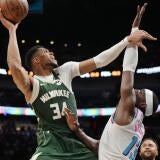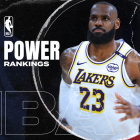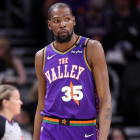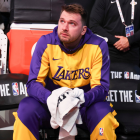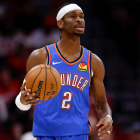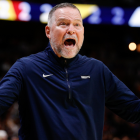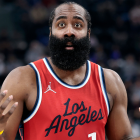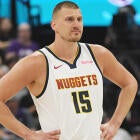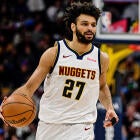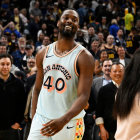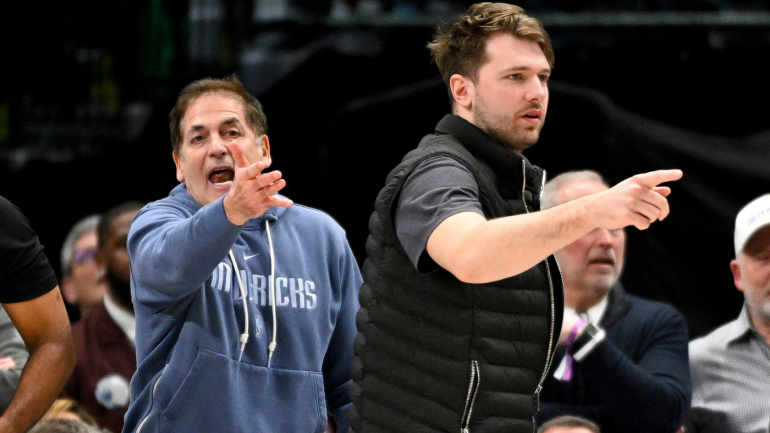
In an interview on "The Stephen A. Smith Show," Dallas Mavericks minority owner Mark Cuban said that the Luka Dončić trade was rooted in a failure to understand the Slovenian superstar's background.
"He's always really intense on the court," Cuban said in an interview released two days ahead of Dončić's return to Dallas as the Mavs host the Lakers on Wednesday. "Always. You see his response to the referees. You see his responses to anybody. He is intense. And while [Serbian superstar Nikola Jokić] might not be as purely emotional and I don't get to see as many as his games, the guy is intense, you know? But when the game is over and he goes back home, he's more interested in harness racing. Which, by the way, I grew up watching my entire life, so I don't blame him. But they go back and they life their lives. It's just different. And you've gotta accept those differences in players from that part of the world, and I think that was part of our mistake."
Cuban still uses the words "we" and "us" to refer to the Mavericks, but he has made it clear on multiple occasions that Dončić would not have been traded if he were still the majority owner, a point he reiterated to Smith. When general manager Nico Harrison called to tell him about the trade, "I was like, 'You're asking me right? This isn't done,'" Cuban said. "And he was like, 'No, it's done.' And I was like, 'OK. Nothing more to talk about. I wouldn't have done this. And thanks for giving me the call.'"
By trading Dončić, Harrison and owner Patrick Dumont effectively bet against his career continuing on the trajectory of an all-time great. In the aftermath of the trade, ESPN's Tim MacMahon reported that Dallas was worried about Dončić's durability and extremely frustrated by his "lackadaisical approach to diet and conditioning." In a press conference the day after the deal was done, Harrison repeatedly emphasized that newcomers Anthony Davis and Max Christie exemplified the culture the team wanted to build.
In an interview with the Dallas Morning News' Brad Townsend, owner Patrick Dumont said that the Mavs want the kind of players who work "really hard, every day, with a singular focus to win," citing Michael Jordan, Larry Bird, Kobe Bryant and Shaquille O'Neal as examples. Neither Harrison nor Dumont said directly that Dončić wasn't committed enough, but, in both cases, the implication was clear.
"I mean, look, everybody saw him: It wasn't like he was ripped and had a six-pack," Cuban said. "But what I think -- what the biggest mistake was in trying to understand Luka is he's from the Balkans, right? He's Slovenian. And you look at Jokic, who's Serbian, and you look at Serbian players in general, there's just a different mindset, right? They look at the game differently, they look at life differently. They're emotionally -- the guys that I've gotten to know from that region of the world are different. And I think that was what was not considered as fully as it should have been: that you've gotta understand what people are like, what their backgrounds are like, who they are personally, what their families are like, how they interact with other people."
Other than being a Hall of Fame-caliber basketball player, Dončić is "just like every other guy" from the Balkans, Cuban said. "And I think that was one of the reasons he loves to play with the Slovenian team. He relates so well to all the other players from that part of the world. Over the summers, that's who he's hanging out with. That's who he is. And so I don't think that we truly took the time to understand that, and I think that really led to this decision. And that really underpinned this decision. That lack of attention to that issue. And I think here we are."
Harrison, a former Nike sneaker rep, specifically targeted Davis. In Davis' first interview as a Maverick, the big man said they'd known each other since he was in high school, they'd gotten to know each other better better after he signed with Nike and had "stayed close throughout the years." Coach Jason Kidd was comfortable with Davis, too, having coached him for two seasons on Frank Vogel's staff with the Los Angeles Lakers. Cuban is saying that Dallas traded its franchise player, weeks away from his 26th birthday, for a package headlined by a star who is six years older, in part because it misjudged Dončić's mindset, mistaking his life away from the court -- the Mavs didn't like his fondness for beer and hookah, according to The Athletic's Sam Amick -- for some sort of fundamental flaw.
"You have to understand where people are from in the world, that the culture you grow up in makes a difference as to who you are as an athlete, as a professional in any sport," Cuban said. "And as a businessperson, for that matter."
Cuban has a point. Dončić is not a perfect basketball player, but he wasn't too lazy and unfocused to lead Dallas to the NBA Finals last season and the conference finals a couple of years prior. You'd think that this team success, combined with Dončić's individual accolades -- EuroLeague MVP at 19, five straight All-NBA First Team selections at 25, etc. -- would have alleviated any concerns about his work ethic, but here we are.
![[object Object] Logo](https://sportshub.cbsistatic.com/i/2020/04/22/e9ceb731-8b3f-4c60-98fe-090ab66a2997/screen-shot-2020-04-22-at-11-04-56-am.png)




